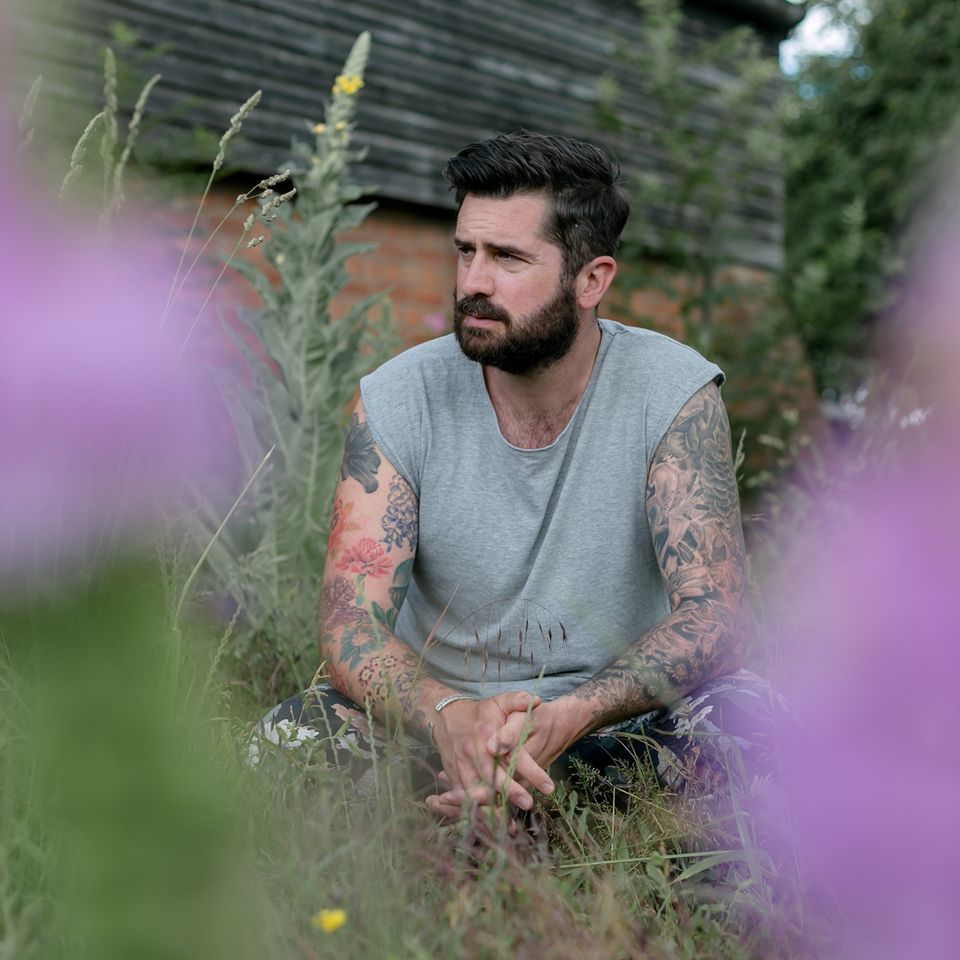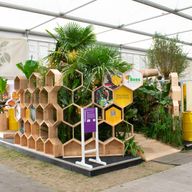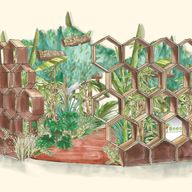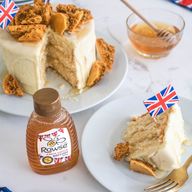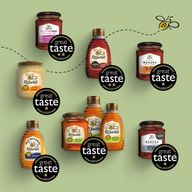
How can we garden naturally?
You’ll find gardening easier and more pleasurable when you maintain a good eco-system in your garden. And in time, pesticides and herbicides will become redundant – mostly as there’ll be plenty more natural predators there to do the job for you!
There are also tonnes of items around the home you can utilise to “garden naturally”. And by encouraging a slightly more laissez-fair style in your garden, you can create habitats for wildlife.
Whatever size of garden you have, there’s plenty you can do to help Feed The Bees, and the wildlife, with a natural garden. Here’s a few handy tips:
Making Habitats
Give insects and small creatures their own home in your garden.
You can start by leaving a few areas to run a little bit wild, so they offer shelter to all creatures big and small.
For wonderful bee-friendly habitats choose nectar- and pollen-rich flowers- which tend to be brightly coloured, and simple in structure so just as (visually) appealing for you too. Pay particular attention to the blooms you choose to plant for both the height of summer when there’s more competition for nectar and pollen, and winter when sources can be scarce.
Bee hotels are also great for boosting bee diversity in your garden. You’ll attract solitary species, which lay their eggs in the hollow cavities of the ‘hotel’, leaving a food supply for the larvae to eat. Position in full sun and away from predators.
The more habitats you offer birds, hedgehogs and small mammals, the less slugs, snails and aphids you’ll have on your plants. You know it make sense!
Make your Own Compost
It’s worthwhile putting aside an area of your garden for composting, you can either buy a specialist container or construct your own.
Add all manner of things to your compost heap, and the result will be full of nutrients! These things might include lawn clippings, old egg boxes, shredded newspaper, hedge trimmings and of course vegetable scraps from the kitchen!
The compost takes around a year to form and makes the perfect top mulch for your border plants or mixing into pots of patio plants.
Natural Pest Control
If you have persistent aphid (small sap-sucking insects) problems, and you would prefer to eradicate them, then you’ll find soapy water as an easy option. Mix up a weak solution and use it every 2 weeks on your affected plants using a sprayer.
Another cheeky mix, this time for blackspot on roses… mix up 1 tablespoon of baking soda, 1 tablespoon of vegetable oil into a gallon water and then spray both sides of the leaves.
Or, how about dissuading unwanted pests from your garden? You can do this with other plants…! The scents of Basil, Marigolds (which are super bee-friendly) and Garlic planted near your prized plants and vegetables will deter aphids and the like.
Feeding your Plants Naturally
You want your flowers to flourish for your own pleasure, as well as providing juicy nectar for all of our powerful pollinators.
You can use leftover coffee grounds on your outdoor, and indoor, plants. Ferns in particular will enjoy their acidic kick! Plants also love starch, so when you cook your noodles and pasta, don’t be too quick to throw the water away. Pour it onto your plants, but of course wait until it’s cooled first!
Crushed eggshells have long been known as a deterrent to slugs and snails, but they’re also good for the soil. Mixing them into the top layer of soil will help to aerate the soil too.
And, here’s another idea to keep weeds at bay- simply place damp newspaper down around your plants, creating collars to protect them!
Natural Garden Care
Try to reduce the use of plastic in your garden by re-using pots and containers, and instead explore different materials for times you’d usually use plastic.
Old tights and panty hose are ideal for tying in plants, it’s soft and flexible and won’t harm the plants.
Discarded packing chips also make excellent drainage for pots, add a layer at the base instead of gravel.
Some people also find that using a (clean) nappy in your baskets works nicely, as it soaks up the water, releasing it slowly into the compost. This can be a godsend, especially as hanging baskets dry out quicker than most containers!
And, here’s a way to tackle weeds without nasty chemicals, did you know that a mix of 1-part gin, 1-part white vinegar and 8parts water will kill weeds almost instantly? It’s important to know that the neonicotinoids in most pesticides are extremely harmful to bees, specifically damaging their gut bacteria and can make them more prone to infection.
Mulching your Plants
How can we reduce watering in our garden, especially to keep our bee-friendly plants happy? Well, it’s actually really easy- all you need to do is cover the soil surface with mulch!
Mulch can be in the form of bark, gravel and fresh compost. It will lock any moisture into the soil, and prevent evaporation. This form of gardening is often called ‘xeriscaping’, which is basically gardening without the need for water. Xeriscapes also include drought tolerant, wildlife-friendly plants, which are zero maintenance.
The best thing about mulch though? It stops the weeds getting a look in. Phew!
Upcycling Containers
The world is your oyster when it comes to containers for your plants, be brave, be bold!
The most important thing is to make sure the container has drainage. You can achieve this by drilling some small holes in the base or adding a layer of gravel. This means water can run out of the container, and it’ll prevent waterlogging.
Try a leftover Rowse honey pot or jar if you like, the bees will be super happy about that!
Attracting Natural Predators
Do everything you can to attract hedgehogs, birds and small mammals to your garden. They will sort your pests out for you! But, it’s not just about the larger creatures, remember ladybirds will feed on aphids too.
The wider your plant selection, the more wildlife you can attract to your garden.
So, take the wildlife baton and give natural gardening a go! It’s simple, it’s enjoyable and the bees will love you for it!
photo by Caroline Horne Photography
